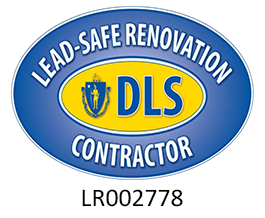Water containing high levels of calcium, magnesium, lime, and other minerals is said to be “hard”. It doesn’t pose any health risks per se, but it can cause problems for your home’s plumbing and water-using appliances. Hard water also can make several common household tasks a little tougher to check off your to-do list.
Wondering if you have hard water? Here are several of the most common symptoms. If any sound familiar, perhaps it’s time to have your water tested for hardness and install a water softener to counteract the problem.
Reduced Water Heater Lifespan
The average tank-style water heater lasts around 10 years, but hard water can shorten its “life” by as much as 5 years, depending on severity. As limescale forms on the heating element, it gradually reduces the unit’s ability to heat water properly. Additionally, mineral deposits that settle on the bottom of the tank can decrease the amount of water in the tank.
Stubborn Deposits Around Faucets
White film or stubborn deposits around kitchen and bathroom faucets are a telltale sign of water hardness. While it can be removed using a specifically formulated cleanser made for removing lime, the problem will persist while hard water conditions prevail.
Residue on Tubs and Showers
High levels of calcium in water prevents soap from dissolving and rinsing away, leaving a scummy film on tile, shower and tub surrounds, fixtures, and shower curtains. Even after a thorough cleaning, these surfaces can continue to look dirty and dull.
Slow-Flushing Toilets
Any surface that comes into regular contact with hard water is susceptible to forming mineral deposits. In toilets, impurities form inside the drainpipes, narrowing them and reducing water flow while setting the stage for more frequent clogs. Additionally, deposits can form inside the toilet tank and corrode internal components.
Slow Sink Drains
Just like toilet drainpipes, mineral build-up inside sink drains can reduce water flow and slow down the draining process. Over time, this leads to more frequent clogging, especially when bits of debris get lodged in the narrowed pipes.
Reduced Appliance Lifespan
Any appliances that use hard water won’t last as long as those that use soft water. Mineral deposits can narrow water supply lines, drain lines, and build up on internal components, reducing the appliance’s effectiveness and useful life.
Unpleasant Drinking Water
Mineral deposits can make drinking water look murky and give it a metallic taste. Not exactly the picture of refreshment you hope for on a hot day.
Lackluster Showers
What once produced an invigorating spray of water can quickly clog due to hard water, leaving you with a sad trickle at best.
Itchy, Dry Skin
Does it seem like there’s not enough moisturizing lotion in the world to tame your dry, itchy skin? If so, the problem could be caused by hard water preventing soap from dissolving and washing away clean. Hard water also prevents shampoo from lathering as it should, leaving you with dull hair even after you rinse.
If dealing with these and related problems is your idea of a good time, you don’t need our assistance. But then there’s nothing fun about any of it, which is exactly why you need Pann Home Services. Our water quality specialists can – and, with your approval, will – install a whole-house water softener to help you kiss hard water problems good-bye. For a free in-home consultation and proposal, contact us today.









